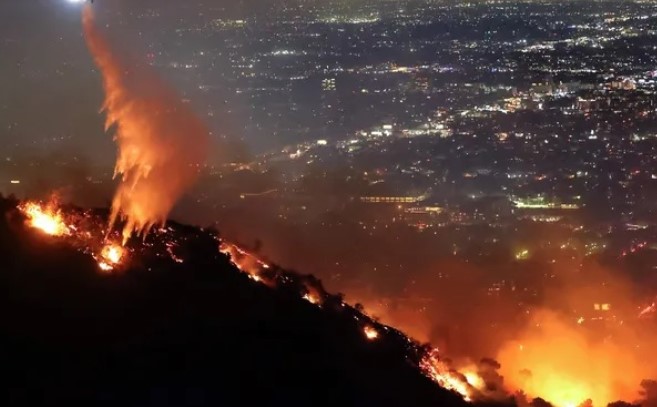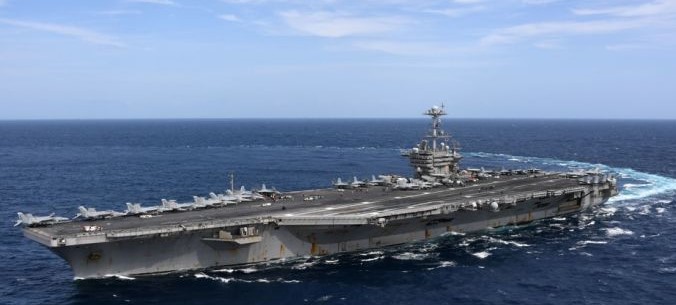
STRATEGIC ASSESSMENT. The Asa’ib Ahl al-Haq (AAH) designation received little national attention as a consequence of Soleimani’s death, but the FTO designation is a significant sanction. AAH joins Lebanese Hezbollah (LH), designated in 1997, and Kata’ib Hezbollah (KH), designated in 2009, as Iranian proxy groups listed as FTOs. In 2019, the State Department took the unprecedented step of labeling the IRGC (and IRGC-QF as a sub-body), a state entity, as an FTO.
In addition to the AAH FTO designation, the State Department designated Qays and Laith al-Khazali, senior AAH leaders, pursuant to Executive Order 13224. One month prior, the Khazalis were designated by the U.S. Department of the Treasury pursuant to E.O. 13818 for their involvement in human right abuses in Iraq, to include approving the using of lethal force to quell Iraqi protests.
AAH has a long history of terrorism. AAH was originally part of the Iran-supported Moqtada al-Sadr’s Jaish al Mahdi (JAM) until it split and became an independent organization in 2006. AAH’s height of terror attacks began shortly thereafter when the group specialized in guerrilla tactics, including a campaign of explosively formed penetrator (EFP) attacks against U.S. and Iraqi security forces. According to the U.S. Department of State, the group took responsibility for more than 6,000 attacks against U.S. and coalition forces. Qays and his brother Laith al-Khazali were held in connection to the January 2007 attack which killed five U.S. soldiers in Karbala, Iraq. Laith was detained for his role in the attack but was later released in 2009 in an apparent effort to support reconciliation efforts between AAH and the Iraqi government.
In a separate instance, Qays, too, was captured by Coalition forces but released in 2010. AAH is sponsored by the Iranian government and maintains close ties with other Iranian proxies, such as LH and KH. Since reconciling with the Iraqi government, AAH has joined the political fold and, in fact, has held seats in Iraq’s parliament since 2018. Qais, AAH’s leader, holds a parliamentary seat. AAH has tried to enmesh itself within the Iraqi political system, not unlike Hezbollah’s approach in Lebanon where it retains significant sway in all aspects of Lebanese society. AAH has been politically active in uprooting the U.S. presence from Iraq, where the parliament recently voted to expel U.S. troops. AAH also played a role in the recent siege of the U.S. Embassy in Baghdad.
The AAH FTO designation has three primary legal repercussions. First, AAH is blocked from using the U.S. formal financial system. Second, anyone providing material support to the organization can be criminally prosecuted. Third, any member of AAH will be denied entry into the United States. While these are the tangible consequences, AAH’s and the Khazali brothers’ designations could make it easier for the U.S. to strike AAH. In the Pentagon’s official statement regarding the killing of Soleimani the first paragraph emphasized the IRGC-OF’s FTO status.
Other senior level U.S. official statements noted the IRGC’s designation and that of Soleimani, who was designated pursuant to E.O. 13224 by the U.S. Department of the Treasury in 2007. Despite the AAH FTO designation, targeting the Khazalis may not be as straightforward as that of IRGC or KH personnel given AAH’s political party (and Khazali’s parliament membership) status in Iraq – where Washington hopes to be able to maintain some kind of troop presence. The U.S. designation is also certain to complicate the provision of security aid to the government of Iraq due to AAH’s prominent role within the Popular Mobilization Units.
Late in the evening on January 7, reports began circulating that Iran fired more than a dozen ballistic missiles against bases in Iraq where Iraqi, U.S., and Coalition troops are stationed. The missiles were launched from Iranian soil at the al-Asad and Erbil bases in an operation squarely aimed at responding to the death of Soleimani. It remains unclear if casualties resulted and some observers suggested that the strikes by Tehran, which were claimed by the Revolutionary Guards, were aimed at assuaging a domestic audience eager for an Iranian response. This is likely just the opening salvo of Iran’s response, which will almost certainly include a subsequent wave of asymmetric attacks using a range of proxy actors and irregular and unconventional warfare tactics (TSC).





